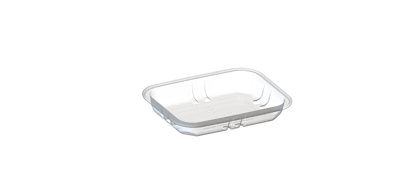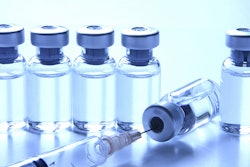
A rolled-edge recyclable overwrap tray made from the same material as recycled water bottles could provide a sustainable alternative to foam packaging in poultry processing, packaging and retail.
“As the poultry industry gets pushed more and more to move toward sustainable packaging, I want to let them know that there is an alternative out there to support their needs,” said Jeff Maguire, managing partner, Clearly Clean.
The poultry industry faces increasing pressure to move away from foam from consumers, government mandates and corporate sustainability responsibility (CSR) program goals.
Today’s consumers prioritize products from companies that support the causes they believe in. Nearly 90% of people surveyed by market research company Cone Communications said they would purchase a product because a company supported an issue they valued. More importantly, 75% of respondents indicated they would refuse to buy from a company that supports an issue contrary to their own belief.
As a result of consumer demand, many retail and foodservice companies have set Net Zero and other sustainability goals, with the implications felt throughout the entire poultry supply chain.
PET plastic packaging
The eco-friendly trays are made with PET plastic, a thermoplastic polymer resin used in clothing, water bottles and other containers. A rolled edge helps maintain the tray’s strength, which can prevent moisture leakage and product spoilage.
It is designed to fit any equipment and packaging machinery currently in use. The packaging’s size, thickness, shape and color are easily customizable for use in food processing, packaging or retail.
Once the tray’s lifecycle is complete, it can be easily disposed of curbside or recycled into new trays, containers, water bottles and other products.
“The biggest benefit of our technology is that it is sustainable long term. We can recycle these trays and continuously use them over and over,” Maguire explained.

















